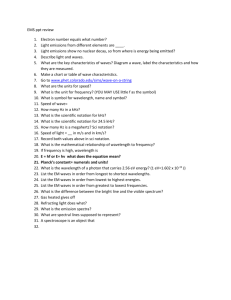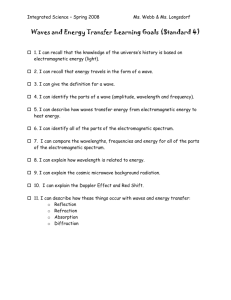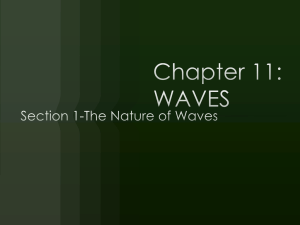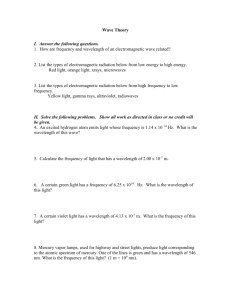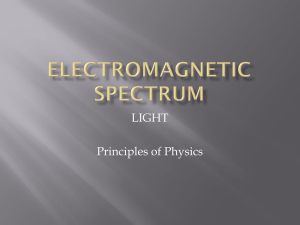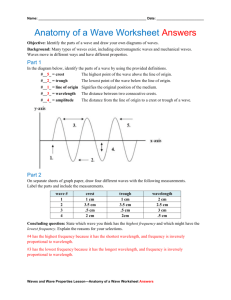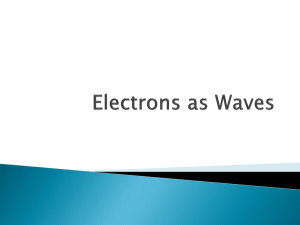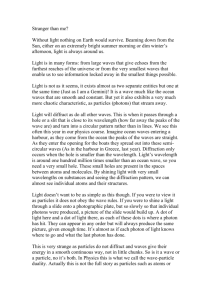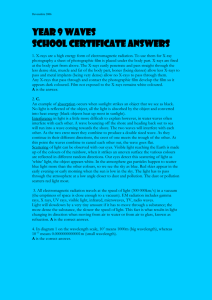Wave Equation Calculations
advertisement
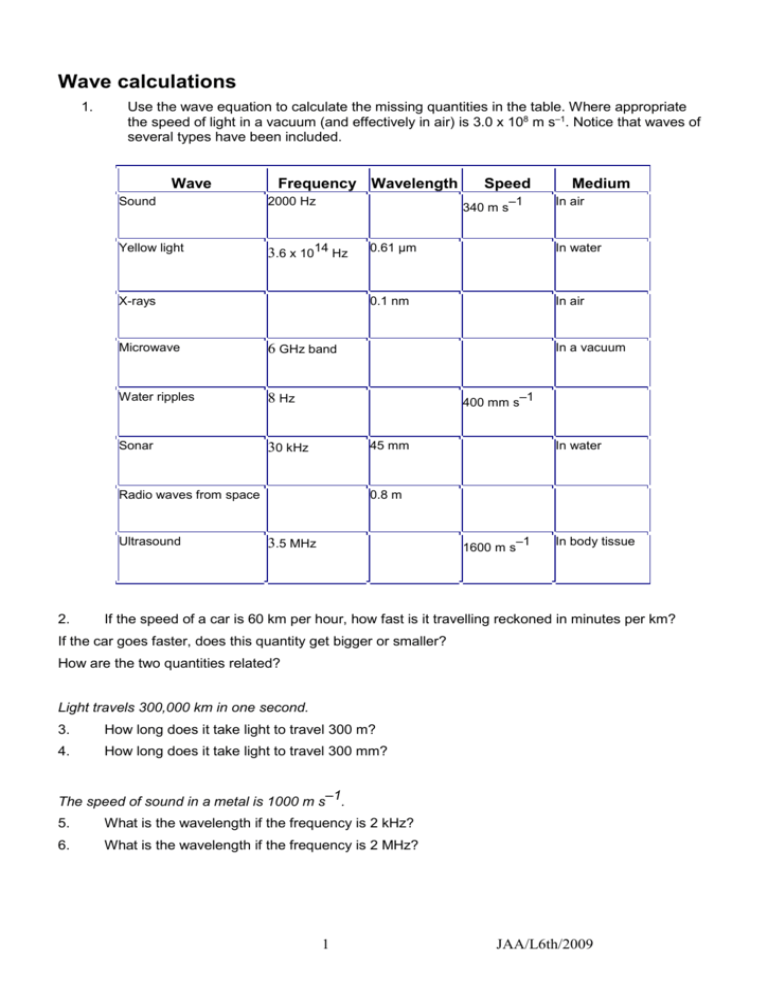
Wave calculations 1. Use the wave equation to calculate the missing quantities in the table. Where appropriate the speed of light in a vacuum (and effectively in air) is 3.0 x 108 m s–1. Notice that waves of several types have been included. Wave Frequency Wavelength Sound 2000 Hz Yellow light 3.6 x 1014 Hz 340 m s X-rays Microwave 6 GHz band Water ripples 8 Hz Sonar 30 kHz 2. –1 Medium In air 0.61 μm In water 0.1 nm In air In a vacuum 400 mm s –1 45 mm Radio waves from space Ultrasound Speed In water 0.8 m 3.5 MHz 1600 m s –1 In body tissue If the speed of a car is 60 km per hour, how fast is it travelling reckoned in minutes per km? If the car goes faster, does this quantity get bigger or smaller? How are the two quantities related? Light travels 300,000 km in one second. 3. How long does it take light to travel 300 m? 4. How long does it take light to travel 300 mm? The speed of sound in a metal is 1000 m s–1. 5. What is the wavelength if the frequency is 2 kHz? 6. What is the wavelength if the frequency is 2 MHz? 1 JAA/L6th/2009 The speed of sound in air is 330 m s–1; the speed of light in air is 3 108 m s–1. 7. If a thunder clap comes 1.5 s after the lightning strike, how far away is the strike? Explain your calculation. 8. What is the frequency of sound waves of wavelength 100 mm? 9. What is the frequency of radio waves of wavelength 100 mm? 10. If you could 'freeze' ultrasound of wavelength 5 mm as it travels through tissue, how many waves would there be in a one metre length? This quantity is called the wave number. How is it related to wavelength? 11. What quantity is the reciprocal of the wave frequency? Ripple tank waves of length 2 cm travel at 15 cm s1. As they pass into shallow water covering a glass sheet they slow down to 10 cm s1. 12. Find the original frequency of the waves. Comment on the frequencies before and after the refraction. Calculate the new wavelength of the waves. 13. An echo-type depth sounder uses ultrasonic pulses. They take 25 ms to pass down, reflect from the sea floor and return to the ship. If the speed of sound in water is 1600 m s–1 how deep is the seabed? 14. FM or short-wave local radio is transmitted at 95.2 MHz. What is the radio wavelength? 15. In the MW medium wavelength band, waves are transmitted for BBC World Service at 460 m. Calculate the frequency used. 16. Calculate the wavelength of C#, the musical note of frequency 278 Hz. Explain whether a note of this frequency will spread out from (i.e. diffract from) a loudspeaker of diameter 10 cm. 17. Some earthquake waves have the low frequency of 0.2 Hz and a speed of 8 km s–1. What is their wavelength, and how long does one wave cycle take to pass? 18. A bat transmits ultrasonic clicks made of sound of frequency 80 kHz; the clicks have a duration of 0.1 ms. The bat increases the clicking rate from about 20 Hz to 2 kHz as it nears its prey. An echo from an unwary moth initially returns after 20 ms. Find the wavelength of the ultrasound, and the number of waves in a click. What is the initial range of the moth and why does the bat increase its click rate? 2 JAA/L6th/2009
